Philosophy IAS Mains Question Paper 2021:
There are Eight questions divided into Two Sections. Candidate has to attempt Five questions in all. Questions no. 1 and 5 are compulsory and out of the remaining, any Three are to be attempted choosing at least One question from each section.
| Philosophy IAS Mains Question Paper 2021 Paper- I |
Section- A:
1:- Write short answers to the following in about 150 words each: (10 x 5 = 50)
(a) “There is a red chair.” How would Plato explain this statement with the use of his theory of forms? Examine.
(b) “Potentiality is indefinable” according to Aristotle. Explain the relationship between potentiality and actuality with reference to the above philosophical position by taking the example of a “wooden table”.
(c) “Sensible things are those only which are immediately perceived by sense.” Explain Berkeley’s theory of knowledge with reference to the above statement.
(d) Examine the concept of personal identity by Locke.
(e) “The relation between cause and effect is one of constant conjunction”. Examine Hume’s criticism of causation in the light of the above statement.
2:- (a) Discuss Hegel’s Dialectical method. Explain how his dialectical method leads him to the Absolute Idealism. (20)
(b) What according to Logical Positivists are “pseudostatements”? How does one identify “pseudostatements”? Critically discuss with examples. (15)
(c) Explain how Cartesian formulation of ontological argument is criticised by Kant. (15)
3:- (a) What are the main arguments put forward by Moore in his paper “A Defence of Common Sense” to prove that there are possible propositions about the world that are known to be true with certainty? Do you think Moore’s arguments provide a sufficient response to objections presented by the sceptic against the possibility of knowledge? Give reasons in support of your answer. (20)
(b) What according to Strawson are basic particulars? What reasons does Strawson offer to believe that ‘material bodies’ and ‘persons’ are basic particulars? Critically discuss. (15)
(c) Critically examine Quine’s postulate of empiricism without the dogmas with reference to his ‘Two Dogmas of Empiricism’. (15)
4:- (a) Present a critical exposition of Husserl’s criticism of ‘natural attitude’. How does Husserl propose to address the problems involved in natural attitude through his phenomenological method? (20)
(b) “I can always choose, but I ought to know that if I do not choose, I am still choosing”. Critically discuss Sartre’s conception of choice and responsibility in the light of above statement. (15)
(c) What does Wittgenstein mean by the statement – “Whereof one cannot speak, thereof one must be silent ?” Critically discuss. (15)
Section- B:
5:- Write short answers to the following in about 150 words each: (10 x 5 = 50)
(a) Does the seed contain the tree? Discuss with reference to Nyāya-Vaišeșika Philosophy.
(b) Explain with reference to Nyāya Philosophy, the nature of Śabda as the advice of āpta (a reliable person).
(c) Is ‘inseparability’ (ayuta-siddhatva) a necessary condition or a sufficient condition for defining characteristics (laksana) of samavāya (inherence)? Explain with reference to Vaišeșika Philosophy.
(d) Distinguish between pudgala-nairātmyavāda and dharma-nairātmyavāda with reference to Buddhist Philosophy.
(e) Comment on the bearing of Cārvāka epistemology on the rejection of transcendental entities by them.
6:- (a) Explain with reference to Yoga Philosophy, the nature of klešas. How does the removal of these lead to kaivalya? (20)
(b) Explain the Sānkhya view on three gunas (guņa-traya) and their modifications. (15)
(c) What, according to Mimārsakas, is the ontological status of abhāva (absence) and how does one know it? Explain and examine. (15)
7:- (a) How do the advocates of anirvacaniya-khyāti refute the position of the Naiyāyikas and establish the position of Advaitins regarding the problem of error? Critically discuss. (20)
(b) If everything is momentary then how do the Buddhists explain the problem of memory and ‘personal identity? Critically discuss. (15)
(c) Explain the Jain view of seven-fold (sapta-bhangī) ‘Naya’. (15)
8:- (a) According to Śri Aurobindo, “the awakening of the psychic being and its gradual prominence over all other parts of the being is the first step in the conscious evolution of man’. Explain and examine. (20)
(b) Compare and contrast the views of Sankara and Rāmānuja regarding the status of the world. (15)
(c) Explain the status of jiva and jagat in the philosophy of Mādhvācārya. (15)
| Philosophy IAS Mains Question Paper 2021 Paper- II |
Section- A:
1:- Answer the following questions in about 150 words each: (10 x 5 = 50)
(a) Discuss critically the distributive theory of justice as propounded by R. Nozick.
(b) How does Rousseau distinguish between natural and artificial inequality? Explain.
(c) Is Austin’s theory of sovereignty compatible with democracy? Discuss.
(d) Does monarchy as a form of government leave room for individual freedom? Explain.
(e) How far can land and property rights be effective in empowerment of women? Explain.
2:- (a) Discuss whether Amartya Sen’s idea of justice is an improvement upon Rawl’s theory of justice. (20)
(b) Explain the reformative theory of punishment and discuss whether this is in tune with human dignity. (15)
(c) Can humanism be a substitute for religion? Explain and evaluate in the context of the present Indian society. (15)
3:- (a) Discuss anarchism as a political ideology. Is it possible to dispense with political authority completely? Give reasons for your answer. (20)
(b) Discuss the distinctive features of Gandhian Socialism and its contemporary relevance. (15)
(c) Discuss Kautilya’s contribution regarding the concept of sovereignty. Is it applicable in a democratic form of government? Explain. (15)
4:- (a) Discuss the views of Dr. B.R. Ambedkar regarding caste-discrimination in Indian Society. What are the measures suggested by him for its elimination? Explain. (20)
(b) What are the main causes of female foeticide in India? It is the result of demonic application of technology only? Discuss. (15)
(c) Evaluate whether the social contract theory adequately addresses the different issues of human rights. (15)
Section- B:
5:- Answer the following questions in about 150 words each: (10 x 5 = 50)
(a) Discuss the nature of God as propounded in Nyāya philosophy.
(b) Discuss the possibility of Absolute Truth in the context of religious pluralism.
(c) Is religious freedom possible in a multireligious society? Explain.
(d) Is religious life possible without the belief in God? Discuss.
(e) Discuss the paradox of omnipotence of God in the context of the existence of evil.
6:- (a) Discuss the concept of immortality of soul with special reference to Hindu tradition. (20)
(b) Elucidate the concept of liberation according to Advaita Vedanta. Explain the role of knowledge in the attainment of liberation. (15)
(c) Do you consider that religion and morality are inseparable? Give reasons for your answer. (15)
7:- (a) Discuss the role of reason and faith in religion. Can reason be a regulative force in the formulation of religious beliefs? Explain. (20)
(b) Give a critical account of moral argument to prove the existence of God. (15)
(c) Explain the concept of religious experience in the light of Vedāntic tradition. (15)
8:- (a) What is non-cognitive theory of religious language? Explain critically in the light of R.B. Braithwaite’s views. (20)
(b) Discuss and evaluate the doctrine of Karma as an essential postulate of Hinduism. (15)
(c) Explain the symbolic nature of religious language with special reference to Paul Tillich. (15)
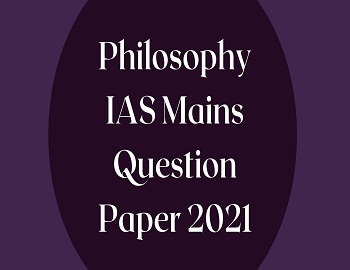
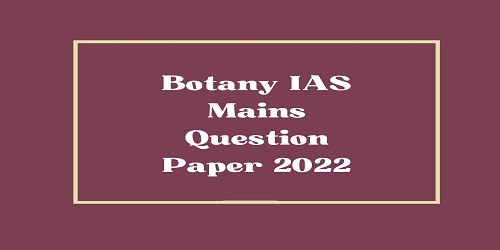
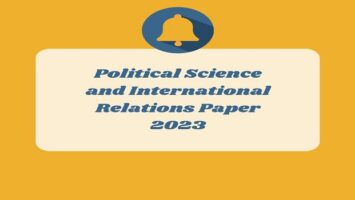
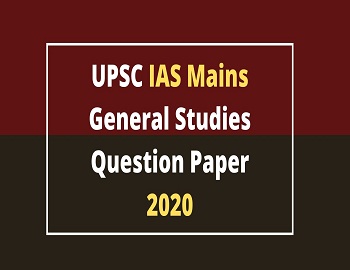
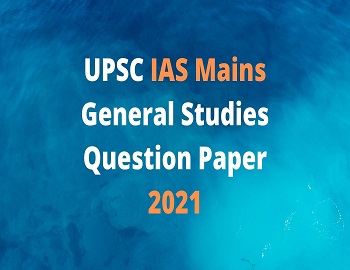
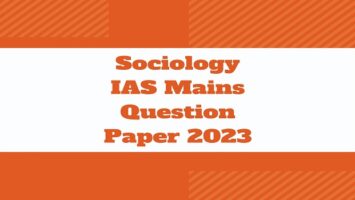
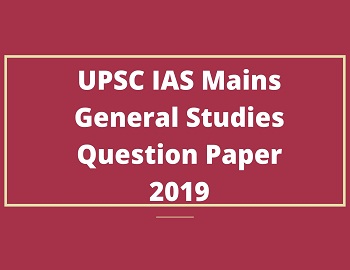
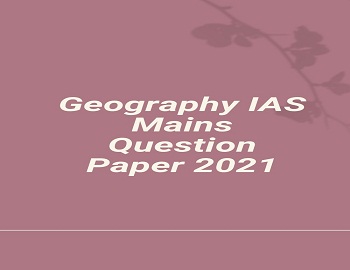
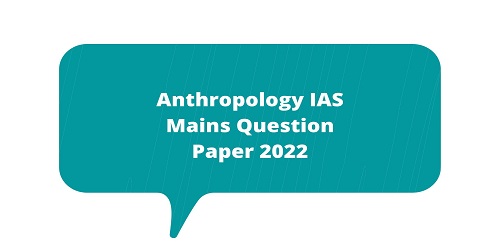
Comments (No)